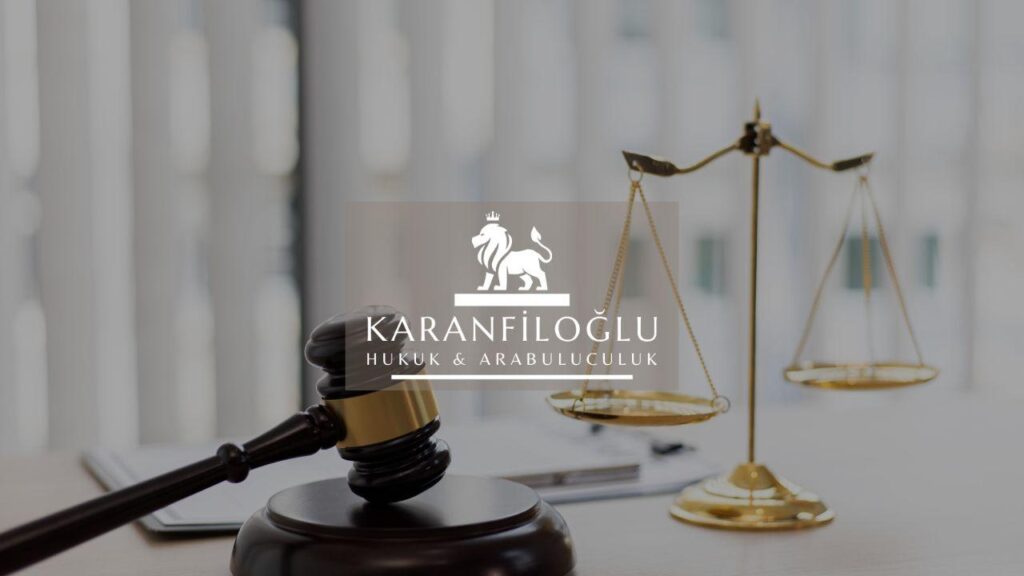Investing in real estate in Turkey offers substantial potential rewards, but it also carries inherent legal risks that necessitate careful mitigation strategies. As per the Turkish Civil Code, especially under Article 683, prospective investors must conduct due diligence to verify property rights and confirm the absence of any legal encumbrances or liens. Furthermore, Law No. 6302, which aligns with the regulation of foreign investments in Turkish real estate, underscores the importance of compliance with residency and zoning regulations to avoid future legal disputes. At Karanfiloglu Law Office, we recognize that navigating these complexities is crucial for safeguarding your investments. Engaging expert legal counsel ensures adherence to the comprehensive Due Diligence Regulation and enables the identification and resolution of title deed concerns, land disputes, and fraudulent practices under the provisions of the Cadastre Law. Our legal team stands ready to provide the guidance necessary to mitigate risks and secure your real estate investment in Turkey.
Understanding Legal Frameworks in Turkish Real Estate
In Turkey, the foundation of real estate transactions is grounded in the Turkish Civil Code and the Land Registry Law (Law No. 2644), which articulates the procedures and formalities necessary for the acquisition and registration of property. Article 1007 of the Civil Code imposes an obligation on the State to guarantee the accuracy of land registry records, providing a safety net for investors against defective entries. Moreover, Law No. 6302, enacted in 2012, brought significant changes to foreign ownership laws, removing reciprocity requirements and enabling easier access for foreign investors to Turkish real estate, subject to certain geographical and military zone restrictions. To ensure compliance with these intricate regulations, engaging legal expertise is imperative. At Karanfiloglu Law Office, we provide comprehensive assistance in navigating these frameworks, ensuring that all transactions are transparent and lawful, thereby protecting your investments against potential pitfalls.
Navigating the legal landscape of real estate in Turkey further involves understanding the nuances of the Title Deed Law and zoning regulations. The Title Deed Law mandates that any real estate transaction must be registered with the local Land Registry Directorate to be legally recognized. Compliance with Article 26 of this law ensures the protection of your property rights against third-party claims. Equally crucial is adherence to zoning and planning laws, which govern land use and construction, as outlined in the Zoning Law (Law No. 3194). These regulations dictate permissible uses of the property and require detailed zoning plans to be followed. Ignorance of these protocols can lead to severe legal consequences, including potential fines or the invalidation of property purchases. Thus, at Karanfiloglu Law Office, our commitment to providing sound legal advice and meticulous scrutiny of property documentation serves as your safeguard in making informed investment decisions.
In addition to understanding property acquisition and zoning regulations, investors must be aware of laws pertaining to building approval and property development. The Construction Law (Law No. 3194) stipulates rigorous standards for building permits, architectural designs, and land development, wherein compliance with municipal regulations is essential. Article 21 of this law requires builders to obtain necessary permits before commencing construction, ensuring the legitimacy and legality of real estate projects. Violations of these provisions can lead to substantial penalties, demolition orders, or retroactive compliance costs. At Karanfiloglu Law Office, we offer precise guidance through the intricacies of construction regulations and municipal requirements, helping investors navigate the approval processes efficiently. This meticulous approach not only facilitates a seamless acquisition and development experience but also preempts possible disputes, safeguarding your investment from unforeseen legal hindrances and ensuring long-term security.
Key Legal Risks in Property Transactions
In the realm of property transactions in Turkey, one of the key legal risks involves the verification of the property’s title deed. According to Article 719 of the Turkish Civil Code, it is imperative for buyers to ensure that the seller holds a clear and indisputable ownership of the property. Any failure to authenticate the legitimacy of the title deed can result in future ownership disputes, potentially leading to lengthy legal battles and financial loss. Moreover, buyers must be cautious of existing encumbrances such as mortgages, easements, or outstanding debts associated with the property, as stipulated by Article 1016 of the Civil Code. To address these issues, obtaining a comprehensive title search from the Land Registry Offices is essential. At Karanfiloglu Law Office, we emphasize this critical step in the due diligence process, aiming to preemptively identify and rectify any title-related discrepancies before finalizing a transaction, thus safeguarding our clients from unforeseen liabilities.
Another significant legal risk in Turkish property transactions relates to zoning and planning permissions as per the Zoning Law No. 3194. Investors must verify that the property complies with all the existing zoning plans and land use regulations to ensure their intended use does not violate any local or national statutes. Failure to comply with these regulations can result in substantial fines, restrictions on property development, or even demolition orders. Additionally, it’s essential to understand any urban transformation or land consolidation projects that might impact the property, as these can alter the property’s worth or intended use. Investors should be diligent in assessing any future municipality projects or infrastructure developments, as outlined under Article 18 of the Zoning Law, which could influence the property’s value or usability. At Karanfiloglu Law Office, our expert team assists clients in navigating these complex regulations, providing critical insights and engaging with local planners to ensure compliance and secure investment outcomes.
One additional legal risk that real estate investors must consider is the potential for fraudulent practices during the transaction process. Turkey’s urbanization boom has occasionally attracted unscrupulous parties engaged in deception, such as double selling or presenting falsified documents. As highlighted under the Turkish Penal Code, Article 157, fraud is a criminal offense that can lead to severe penalties. Nevertheless, such practices can cause significant inconvenience and financial damage to innocent buyers. To mitigate these risks, engaging in meticulous checks and leveraging the expertise of professionals is crucial. At Karanfiloglu Law Office, our priority is to protect clients from falling victim to such fraudulent schemes by conducting detailed background checks and verifying all transaction documents. Our seasoned legal team adopts a proactive approach, ensuring that all paperwork is authentic and that all relevant parties adhere to lawful procedures, thus providing our clients with confidence in their property acquisitions.
Strategies for Mitigating Investment Risks in Turkey
Mitigating investment risks in Turkish real estate necessitates a strategic approach, starting with comprehensive due diligence. Engaging a qualified legal professional to conduct a thorough title search is vital, as it ensures verification of ownership and reveals any potential disputes or encumbrances under the Cadastre Law (Law No. 3402). Prospective investors should also verify compliance with zoning and planning regulations, which are governed by the Zoning Law No. 3194. Additionally, securing a ‘TAPU’ (title deed) that accurately reflects the property’s legal status, including any easements or mortgages, is essential. Foreign investors must be particularly vigilant about restrictions imposed by Law No. 6302, which mandates compliance with specific residency and property ownership conditions. At Karanfiloglu Law Office, our expertise in navigating these legal nuances provides investors with peace of mind, ensuring that all potential legal impediments are addressed promptly and effectively.
Another crucial strategy for mitigating investment risks in Turkey’s real estate market is the detailed assessment of financial obligations involved in property transactions. This requires familiarizing oneself with the real estate taxes, including Property Purchase Tax (Tapu Harcı) and annual Property Tax, stipulated under the Real Estate Tax Law No. 1319. It’s imperative to ensure that these obligations are fully understood and met to avoid unexpected liabilities post-purchase. Furthermore, the importance of conducting a meticulous review of any existing contracts or agreements associated with the property cannot be overstated. This is where the expertise of legal counsel from Karanfiloglu Law Office becomes indispensable, as our seasoned lawyers can scrutinize agreements to uncover unfavorable clauses or hidden terms. By preemptively addressing these potential financial pitfalls, investors can steer clear of costly legal disputes and safeguard their financial interests effectively.
In addition to legal and financial due diligence, investors should consider the value of obtaining comprehensive insurance coverage to mitigate unforeseen risks associated with real estate investments in Turkey. Real estate insurance policies, which are governed by the Insurance Law No. 5684, play a pivotal role in protecting assets against damages arising from natural disasters, such as earthquakes and floods, as well as other unexpected events. It’s essential to choose policies that offer sufficient coverage in alignment with the property’s geographical location and structural vulnerabilities. Karanfiloglu Law Office can assist clients in evaluating and selecting the most appropriate insurance solutions, ensuring that all potential liabilities are adequately covered. By taking proactive measures to safeguard investments through insurance, investors can bolster their protection against unforeseen circumstances, ultimately securing their real estate ventures in Turkey and ensuring long-term peace of mind.
Disclaimer: This article is for general informational purposes only and you are strongly advised to consult a legal professional to evaluate your personal situation. No liability is accepted that may arise from the use of the information in this article.







